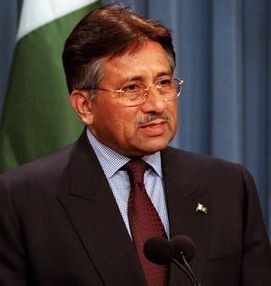On Aug. 14, 165 million Pakistanis celebrated their country's 60th anniversary as an independent nation state. The festivities were tempered, however, by the widespread realization that the country is experiencing its most serious political crisis since Gen. Pervez Musharraf seized power in 1999. The decision by Musharraf to dismiss Chief Supreme Court justice Iftikhar Chaudhry on March 9 precipitated the situation. The president claimed he acted after learning of unspecified misconduct performed by Chaudhry. Most observers, however, view Musharraf's move as an attempt to eliminate a potential impediment to his securing another five-year term as president. Musharraf assumed the presidency in 2001 and, through an April 2002 referendum in which less than 30 percent of the eligible voters participated, secured an extension of his term until October 2007. Hundreds of lawyers organized street protests following the judge's dismissal. On July 20, the Supreme Court ruled Chaudhry's suspension "illegal" and reinstated him as chief judge. The reinstated Chaudhry will now lead the newly independent judiciary when it soon addresses several cases brought by Musharraf's reinvigorated political rivals. Members of Pakistan's traditional opposition parties -- notably the secular Center-left Pakistan Peoples Party (PPP) led by former Prime Minister Benazir Bhutto, and the faction of the conservative Pakistan Muslim League (PML) led by former Prime Minister Nawaz Sharif -- have initiated several law suits demanding a restoration of their civil rights. For example, the court is currently considering a petition by Sharif -- whose attempt to fire Musharraf in October 1999 precipitated the coup that placed the general in power -- that, if approved, would allow him to return from exile.
At 60th Birthday, Pakistan’s Crisis Threatens to Undermine Moderates

